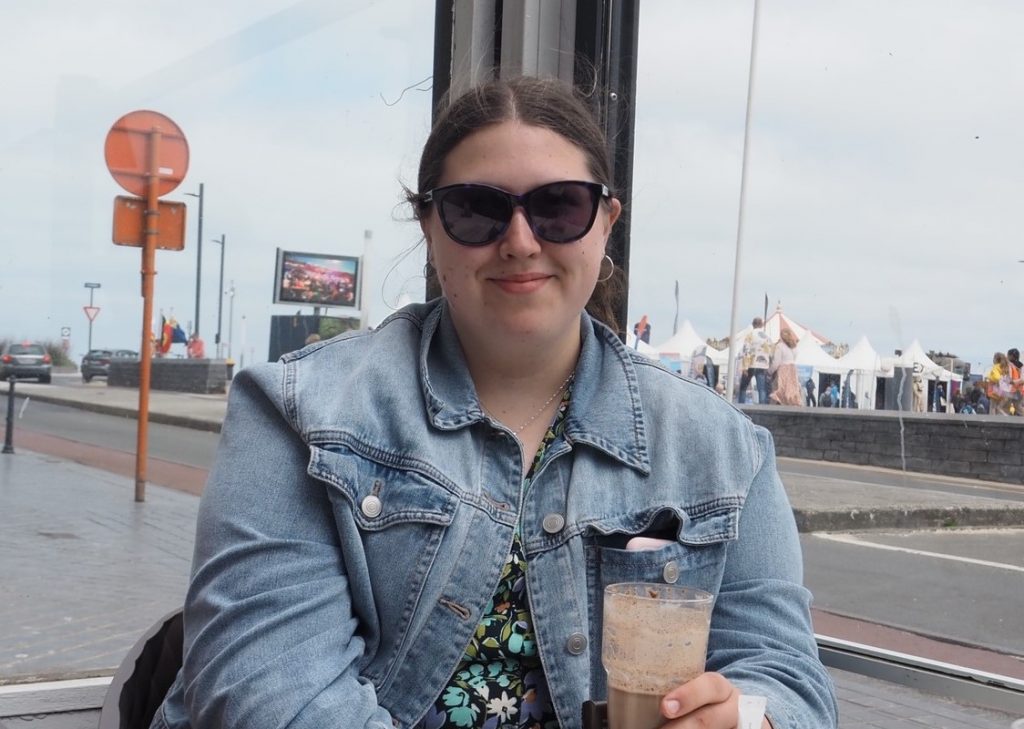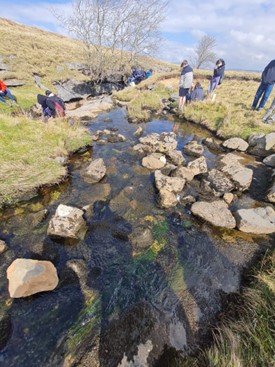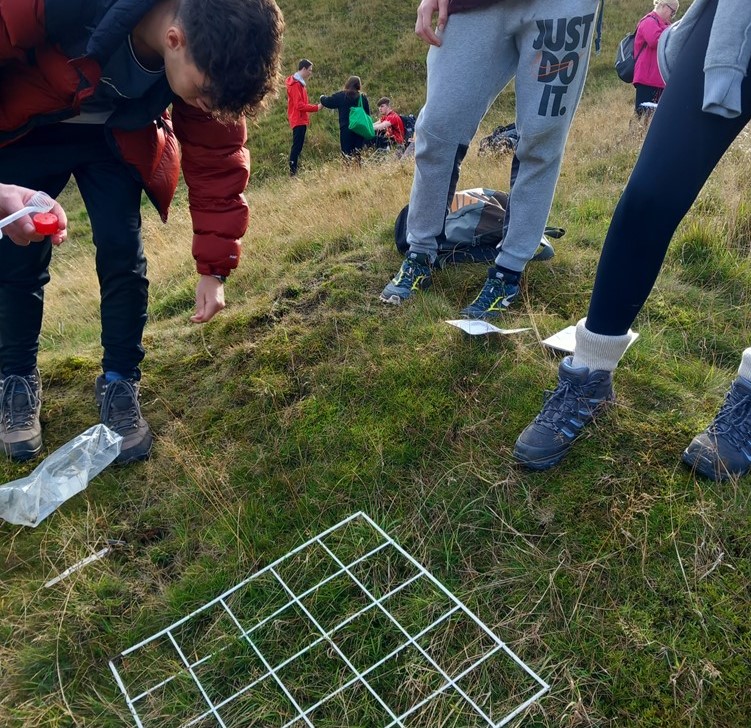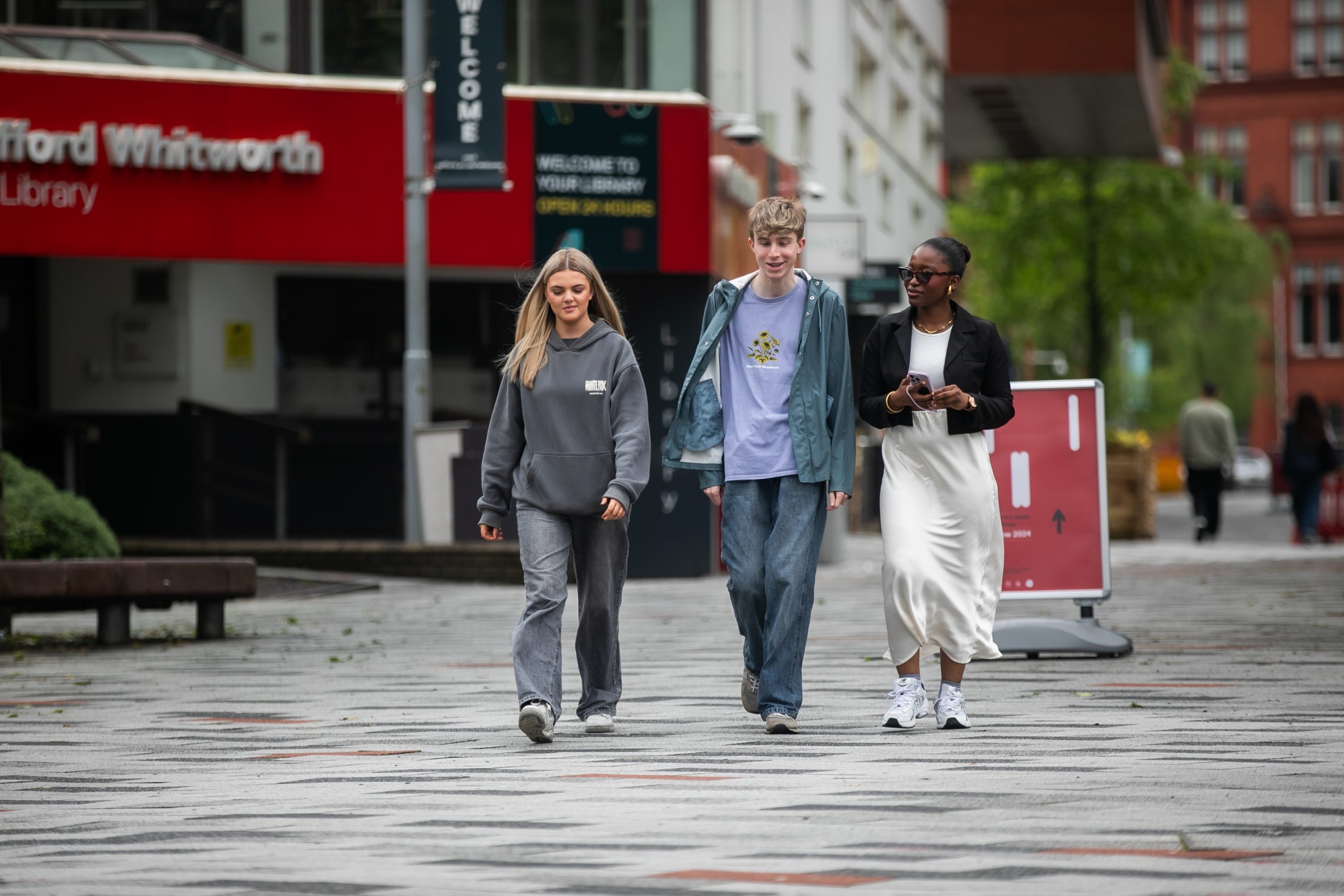Meet first year BSc (Hons) Geography student Abigail and read on to find out about her experience studying at Salford so far.

What inspired you to study geography?
During my time at college, I was unsure of where I wanted to go after completing my exams. Geography has always been a subject that I have enjoyed, but when it came to applying to university, I originally chose a music course at Salford. But when I got my results, everything changed.
It was through the clearing process that I decided that a degree in Geography was the right choice for me. Growing up I was always outside, camping out in nature, which inspired my interest in land management and the natural processes that occur in particular environments. Geography is a constantly evolving area of study that covers current issues in contemporary society. So there are countless opportunities to get involved in new studies and experiments as part of the course, leaving me with experiences that can help with job applications when I graduate.
How did you find the clearing process?
When I first found out I was going through clearing, I was quite worried about not finding a university; however, after speaking to my tutor at sixth form, he suggested I try Salford. When I spoke to the staff at Salford on the phone, they were really friendly and reassured me that everything was going to work out, along with explaining the process as we went through it. Overall, although it felt quite scary and stressful at first, I found that it was actually quite easy.
“Salford has a great balance between green space and the city, so you get the best of both worlds, creating a great atmosphere.”
Abigail, First year BSc (Hons) Geography student
Why did you choose the University of Salford?
The main reason that I chose the University of Salford was for its great geographical location and surrounding transport network. The university is located next to the River Irwell and Manchester city centre, as well as only being one or two hours away from places such as the Lake District and Yorkshire. The team of lecturers is diverse, bringing together a lot of knowledge and experience. Salford also has a great balance between green space and the city, so you get the best of both worlds, creating a great atmosphere.
What does a typical day at university look like for you?
The geography course doesn’t have a set daily timetable, but typically I would have 2 lectures in a day each consisting of 2 hours. These lectures give you the chance to debate around topics, as well as time to demonstrate your own knowledge. Although most lectures will take place in a classroom, there are many instances where we’re encouraged to take our theory onto campus or practice skills on the surrounding environment or even lab work.
Which field trips have you participated in so far as part of your course?
The first field trip of the year takes place during introductory week to Ingleborourgh Caves in Yorkshire. This gave me an insight into the area which we visited later in the year during the residential fieldtrip to measure water quality. The residential fieldtrip is a two night stay in Ribblehead, Yorkshire from where I took part in various activities in Blackpool, Morecambe, Kendal and Settle. Alongside this, I took part in many daytrips, such as studying ecology at Mam Tor in the Peal District, looking at culture in Manchester city centre, visiting a waste recycling plant, as well as a restored peak bog.

My favourite trip has got to be the residential trip, in particular the talk and visit to the River Kent in Kendal. This trip explored such a diverse range of topics, as well as introducing professionals across these fields. Not only did I learn a lot on this trip, it also meant I could spend more time with the people on our course and speak to our lecturers in a less formal setting. One lecturer’s pub quiz was another highlight of this trip, as it gave me more time to chat to people on the course.
Which skills do you think you’ve developed from your fieldwork?
There aren’t many skills that you don’t develop during the fieldwork, but the main ones are independence, teamwork and communication, all of which are key skills for both the trip, but also life after university. You also gain skills such as data measurement and recording alongside this.

Are you involved in any societies or extracurricular activities at Salford?
I’m involved in the Wildlife Society, where we learn to look after animals, the habitats that they live in, and ways to welcome wildlife into your garden. This society also provides community volunteering opportunities and trips to zoos and wildlife parks. I did also try the Archery society but found out I have very bad aim, so decided it wasn’t for me.
Find out more about studying BSc Geography at Salford






Leave a Reply